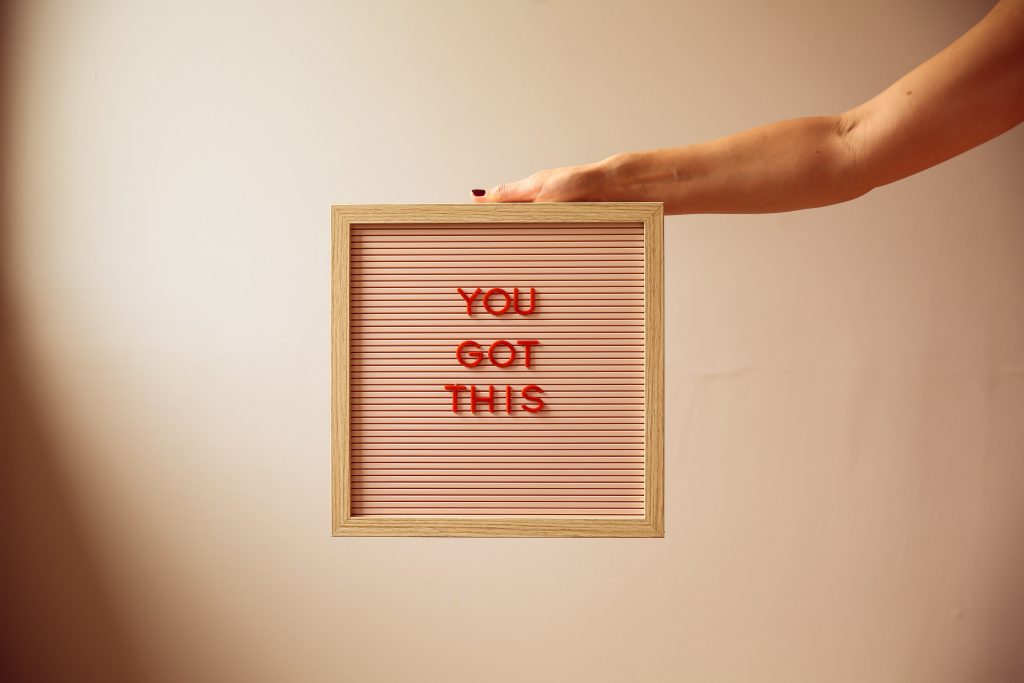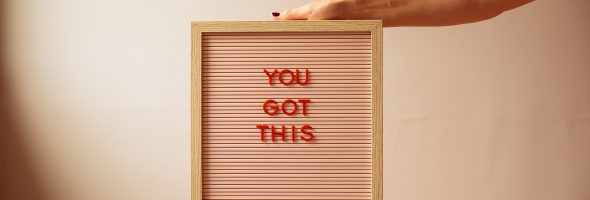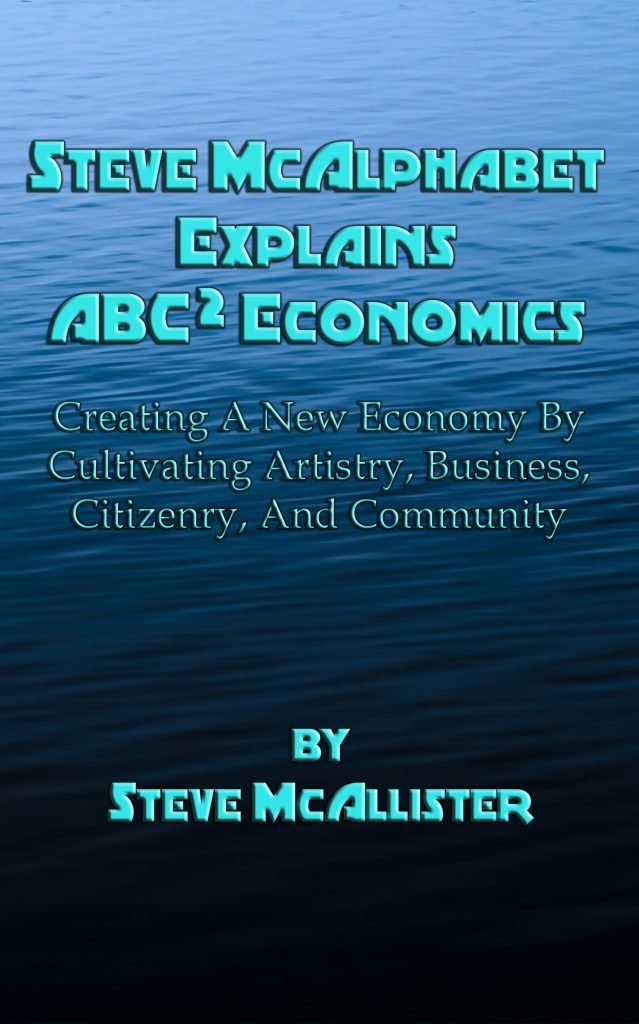The basis of ABC2 Economics is having the ability to channel energy toward our internal and external goals in order to develop a more vibrant overall economy for individuals and the collective. The New Economy, as outlined in ABC2 Economics, offers a more holistic realization that the Market Economy does not exist in a vacuum between merely buyer and seller, but in a vast, interdependent network of Artists creating Businesses to establish a more resilient Citizenry in the development of a stronger Community.
By empowering people with a simple means of directing the flow of their economic energy, the intention is to develop the highest capacity for well-being as individuals and as a collective by more effectively realizing and sharing assets.
The ABC2 Economics model builds on the four avenues through which people participate in society: the Artistry of life, the service of Business, engagement through Citizenry, and the development of Community. Obviously, each avenue reaches greater levels of complexity, and the paths do cross, yet these four activities account for the bulk of human behavior. This allows for a good starting point in understanding where we are, what we have to work with, and where we are going.
“This new generation of networked people understand they are living through a third industrial revolution,” writes Paul Mason in Postcapitalism: A Guide To Our Future, “but they are coming to realize why it has stalled: with the credit system broken, capitalism cannot sustain the scale of automation that is possible, and the destruction of jobs implied by the new technologies. The economy is already producing and reproducing a networked lifestyle and consciousness, at odds with the hierarchies of capitalism. The appetite for radical economic change is clear. The next question is: what do we have to do to achieve it?”
It is my contention that we would benefit by empowering people to cultivate these four aspects of their lives: Artistry, Business, Citizenry, and Community. The digital innovations at our disposal makes it possible to have an open source, transparent economic system that will reflect our true wealth rather than usurp it. Since nearly 92% of the monetary supply is digital and has no physical existence, building on the blockchain technology that allows us to track the flow of each unit of currency, we also have the capacity to channel the flow and empower people to create our economy, rather than corporations and the politicians they employ.
Our life is our art. Regardless of whatever we may do within the confines of the space between birth and death, the one truth for every human being that has ever walked the planet is that their life is completely unique. Even for those who were born into less than fortunate circumstances, where choices may be very limited, each life still carries the opportunity to respond to circumstances and thus offers at least a glimmer of individual artistry.
Even in lives without much room for freedom of choice, in little ways, all through our days, people make little choices that carve out their individuality and help make their lives unique. The capacity with which we are able to decide the course of action for our lives and how we should live them is where the Artistry of life blossoms.
As they say, money cannot buy happiness, but it can buy freedom. And the freedom to make as much money as you want and spend as much money as you want on whatever you want is one of the greatest freedoms offered in a capitalistic society.
Financial freedom certainly does provide great power to those who are able to wield it. Yet as Uncle Ben told Peter Parker, with great power comes great responsibility. Unfortunately, the fine print in the capitalist brochure has historically alleviated responsibility from anything other than merely making money.
For 50 years, capitalists have rallied around the wisdom of Milton Friedman, whose idea that the only responsibility of a business is to increase profits for the stockholders was enough to win him the Nobel prize in economics. Yet five decades later, as corporations have stripped so much of the natural world in order to turn every last resource into money, even ardent capitalists are seeing the negative effects that such myopia can cause. Beyond the isms of the past, people are seeking out better ways to both seize the power of their freedom as well as the responsibility of realizing ourselves as part of the bigger whole in order to create more vibrant art of our lives.
Online reality is the art of this generation. As such, each activity and every transaction has an artist behind it. Either through the product being sold or merely the pressing of keys to deliver information electronically, we are creating commercial presence. Thus, each of us that contributes to the digital economy is an online Artist.
Of course, the internet is largely a virtual representation of actual human society; whatever we do with our time and talent individually contributes to the art of life. As such, although I initially developed the idea of ABC2 Economics with digital transactions in mind, it has the capacity to help us channel our energy in the physical world as well.
In the growing gig economy, many people play various roles. As we participate in the four facets of our being, as Artists, Businesses, Citizens, and Community members, we have the capacity to generate economic flow through multiple sources of income. Ultimately, all that we do, through Business, Citizenry, and Community contributes to the Artistry of our lives. Finding ways to recompense, reward, and remunerate those who contribute to our lives is one of the primary tasks of ABC2 Economics.
In order to share your art, from design and manufacturing to advertising and distribution, there are multiple people who contribute to bringing it to life and bringing it to market. Each of these people is a Business contributing to the Artistry of our lives and empowering us to share what we have to offer.
Historically, we have practiced a hierarchical means of Citizenry by paying taxes levied by governments. Since 1912, the US government has enforced an income tax philosophy that takes a chunk of each citizen’s money before they can get to it in order to sustain government’s own growth. However, the upsurge in freelancers, independent contractors, and smart contracts is making obsolete many unnecessary complexities throughout the Internal Revenue Service, and it offers us the opportunity to cultivate a more participatory and engaged democracy.
Our growing technological capacity offers us the opportunity to be more efficient. As blockchain technology and smart contracts become more prevalent, we eliminate the need for middlemen, which is the essence of government, and we can direct our individual energy directly toward causes we believe in in a way that is much more transparent than the lobbying and campaign contributions that currently corrupt our policies. We are rapidly approaching a time when we will no longer need the governmental structures we now employ to manage our finances and resources because the dream of democracy will have manifested and the government will truly be of, by, and for the people… or at least closer than it is now.
Because all of our activity, our Artistry, Business, and Citizenry, has an impact on the world in at least some way, be it emotional, educational, environmental, or otherwise, we each contribute to the Community in order to support the greater whole. This is where we have historically created charitable organizations and NPOs to clean up our messes, fill in the gaps, and promote the things we love that don’t fit as easily into the Market Economy. For those of who have a passion to see good done in the world and to do good ourselves, contributing to our community by helping the less fortunate, comforting the sick, educating the ignorant, and celebrating beauty is a very important part of our individual economic activity.
ABC2 Economics may not be so idealistic as to put economics in the back seat, as Mr. Keynes hoped, but it does put people in the driver’s seat, where they belong. By encouraging people to cultivate the four aspects of their lives and empowering them to channel their own economic energy, people will be able to drive the economy, and people will be able to finally drive the democracy. ABC2 Economics seeks to offer a map through which to navigate this web of networks, teams, enterprises, and ecosystems we’re creating.

This is an excerpt from the book Steve McAlphabet Explains ABC Squared Economics. Go to https://stevemc.xyz/books/steve-mcalphabet-explains-abc-squared-economics/ to find out more.


